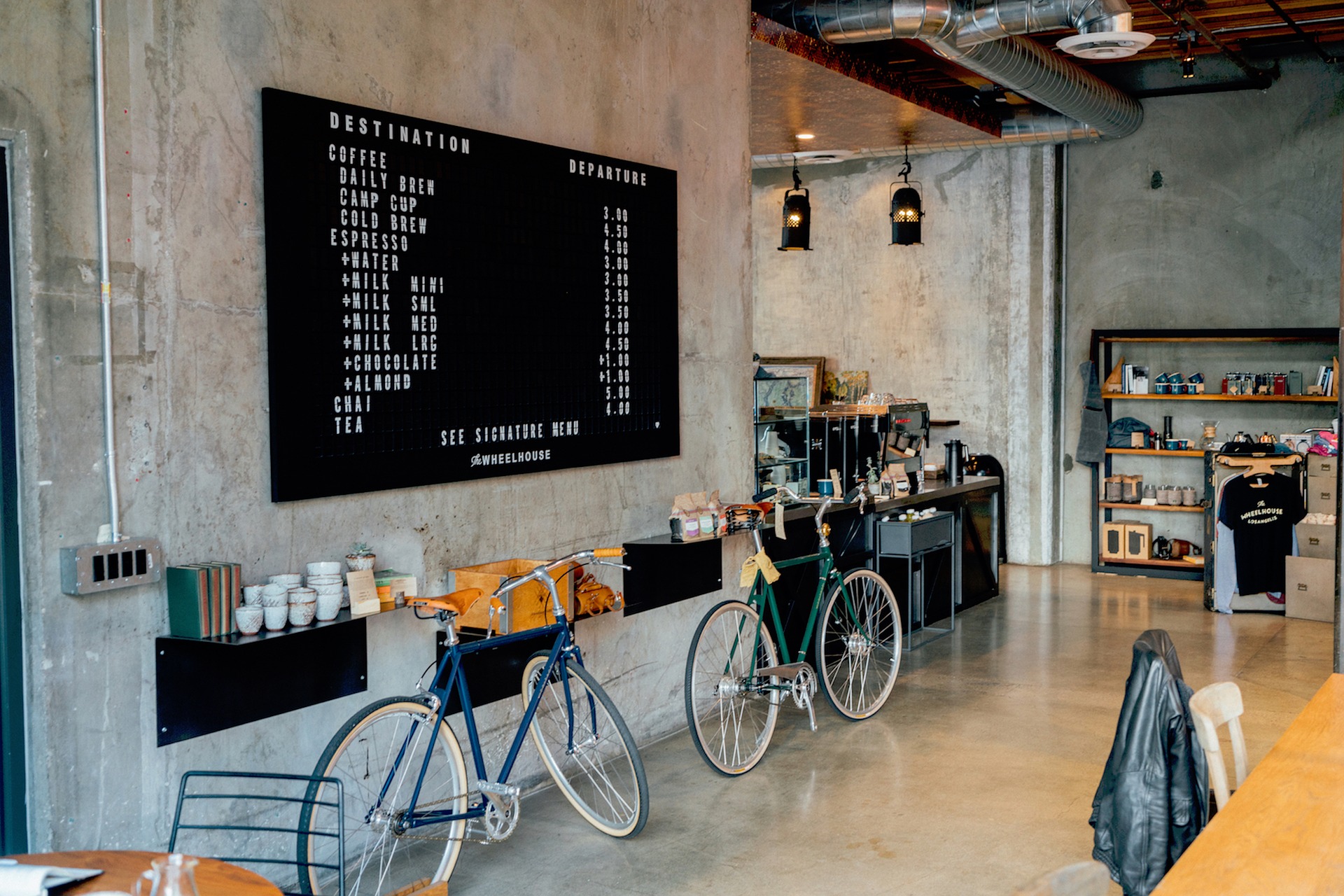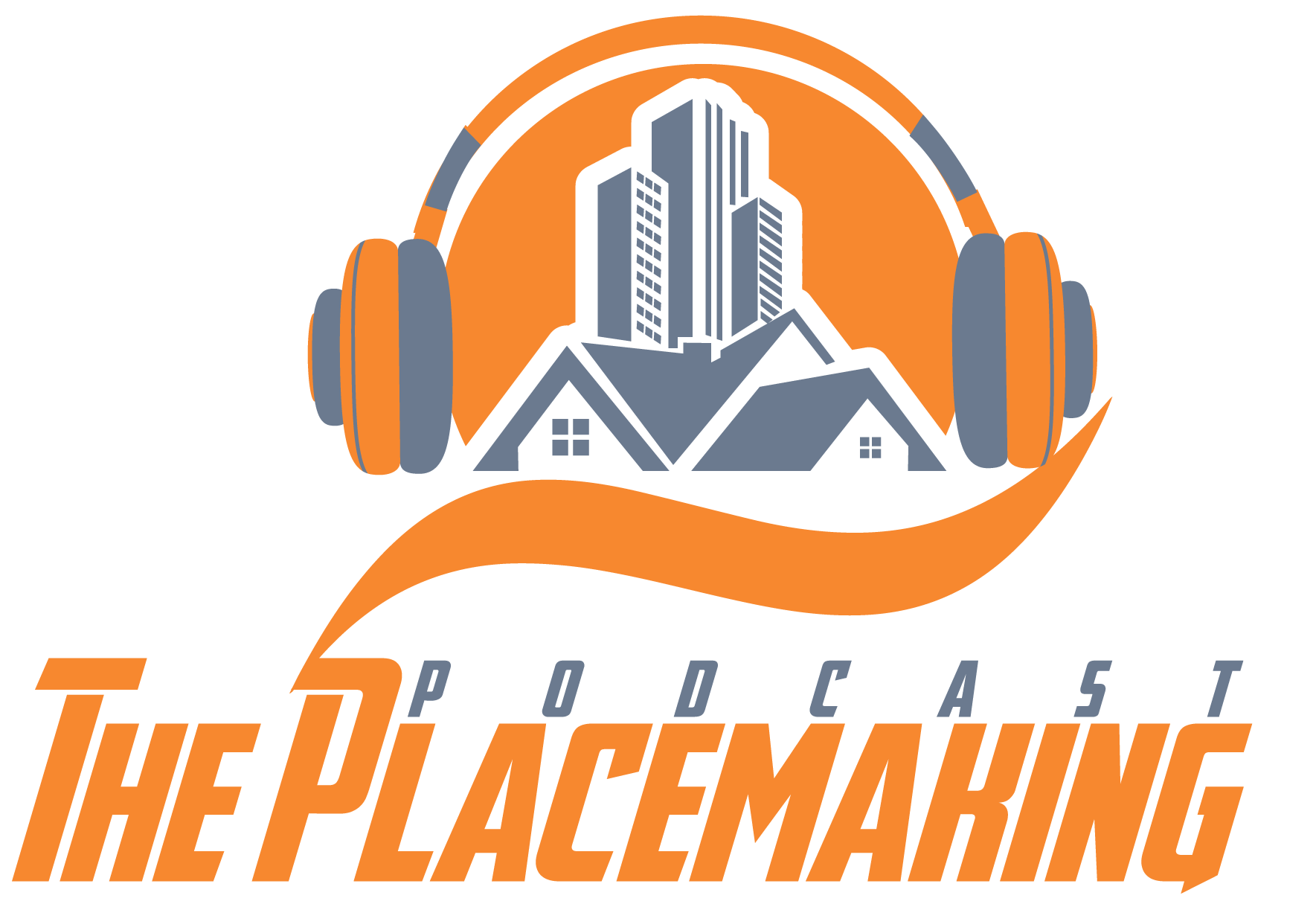- placemakingpodcast@gmail.com
Curating a Development Through the Use of Data in a Post-Covid World With Sara Maffey – Ep. 41
About the Guest
Another great episode is coming your way. I am excited to share this next conversation with all of you. Sara is the Head of Industry Relations at Local Logic. She has a unique mix of experiences that have helped to shape her to. She has worked as an Architectural Intern, Mechanical Superintendent, Consultant, a Fellow with the U.S. Department of Commerce, Economic Developer, and Managing Director of Placemaking at Transwestern, all before starting her role at Local Logic. Needless to say, she knows her stuff when it comes to the business of real estate.
As mentioned above, she is the Head of Industry Relations at Local Logic. The goal of Local Logic is to help individuals and developers make the right real estate decisions. They utilize AI and user-generated data to quantify location qualities for any address in the US and Canada. The company analyzes over 80-billion data points each month and currently interpolates them into 17 location scores. As Sara likes to say, they are the data and insights backing up your investment strategy – gut check your gut feel.
In this episode, we are going to discuss the process of data collection at Local Logic, the certain data points, and trends that have most surprised her during the course of this current global pandemic, and what Sara sees coming next in proptech in regard to data usage in real estate development. There is loads of great information in this episode and I greatly appreciated Sara for taking the time out of her extremely busy schedule to discuss this topic of real estate development data collection with me.
Main Take-Away’s From This Show
This was another fun episode to record. Sara has seemingly worked in every facet of real estate. As mentioned, she has worked in the public sector as well as the private sector. Throughout her various roles in real estate, the underlying passion of creating great spaces has been her guiding light. She understands the importance of placemaking in a community and does her best to promote this ideology in all of the roles that she fulfills, especially in her current role as Head of Industry Relations at Local Logic. There were several great talking points that Sara shared throughout the discussion, so it is hard to just pick three for my main take-away’s this week. The following main topics of the show come from a deep understanding in Placemaking that Sara possesses.
- Local Logic makes the normally unquantifiable characteristics of an area, quantifiable.
- Data has uncovered some very interesting shifts in desirable aspects of areas and places due to Covid-19.
- What really is the future of data within the larger genre of PropTech?
As always, I will dig into each of these “take-away’s” every week on the blog. So, without further a due, here we go!

Local Logic makes the normally unquantifiable characteristics of an area, quantifiable.
As mentioned in the introduction, Local Logic’s goal is to help individuals and developers make the right real estate decisions. Seems straight-forward right. Well as we dig a little deeper, you’ll begin to understand that there is much more to this than meets the eye. Local Logic is currently working with groups like ReMax and Sotheby’s to provide homebuyers and the like with real insights on the less quantifiable characteristics of a properties surrounding areas. With metrics such as Vibrancy and Quietness, a potential homebuyer could get a better feel for what the neighborhood is like without even stepping food on the block.
Sara also mentioned a project she is very much involved in that includes finding real estate that meets not only the objective metrics utilized by real estate developers but also the subjective metrics. She is hoping to work with developers to really nail down a site that makes the most sense for their product type and target market, i.e. multifamily complex geared toward millennials or young professionals by really analyzing much more than just acreage or current zoning classification. They are able to provide quantifiable metrics for nightlife, art scene, and other subjective metrics.
This is a truly exciting endeavor and I appreciate Sara for pulling back the curtain on this and letting us see the potential for their data analysis capabilities. I’m excited to see what’s in store for this group as they continue to push the boundaries of data compilation and analysis.
Data has uncovered some very interesting shifts in desirable aspects of areas and places due to Covid-19.
This next main point is one that I was personally curious of. When understanding what Local Logic has the capability to do, it made since to ask a few questions on the current state of the real estate market and how Covid-19 has impacted it. With Local Logic’s data collection capabilities, they are able to see some of the pattern and behavior shifts that have occurred within key markets due to Covid-19. I won’t spoil the entire portion of this discussion because it is definitely worth listening to, but this is the main point I had to address here.
Sara mentioned that their data that they are pulling is already showing some interesting trends going on due in large part to the Covid-19 virus. The most surprising thing she has found so far is that people are wanting to move closer to grocery stores in the more metropolitan areas. People are looking to be able to walk to a grocery store to get the essentials they need. With access to transportation hit due to the virus, it made the mundane task of getting groceries much more difficult. Not surprisingly people were eating out less and cooking more which made access to groceries that much more important. With restaurants and clubs having limited service and people being guaranteed, it makes a lot of sense that people would like to locate closer to groceries rather than bars or restaurants.

When asked about growing migrations out of the larger cities to more tertiary markets due to the virus, she mentioned that this has been going on for awhile now. However, the virus has accelerated it some due to the greater open space and more affordability that is found in these tertiary markets such as Charlotte and Nashville. It will be interesting to see how this virus continues to shape and mold the various markets due to new and different demands by consumers.
What really is the future of data within the larger genre of PropTech?
This last main point is a gamechanger. I’m glad we touched on this near the end of our discussion. Increased computing power has continued to push the envelope of what is possible with the new technologies that are arriving seemingly every day. Data is king. There is no doubt about that. Random data by itself is useless, but when computing power is able to sort the random data into meaningful feedback, the power is infinite.

Sara mentioned that the “Holy Grail” for not only their company but real estate professionals as a whole would be a program that analyzes property and would essentially tell you what is the highest and best use for that property. We didn’t go into too many specifics on what this would look like but essentially with the help of Artificial Intelligence (AI), one could analyze a property and determine what asset class, size structure, tenant mix, etc would fit best. This would utilize data analysis to identify the characteristics of the property’s surroundings as well as various other metrics to develop a vision around this property to ultimately make the development successful. Put another way, AI would take into account the objective and subjective metrics that usually go into property development and generate an ideal image of a successful project for the subject property.
As you can see from the takeaways above, this podcast episode was full of amazing information on making it in real estate development and absolutely provides actionable steps you can take on your next real estate development project. As always, if you have enjoyed the content and the show, please subscribe to the show below and share it with your friends! We’ll have many more great discussions on the shows to come.
To Learn More About Sara Maffey and Local Logic, Check out the Following Websites:

Recommended Reading Section
P.S. We spend (a lot) of time, sweat, tears, and money creating each episode of The Placemaking Podcast. We do this without the support of sponsors as we want to keep the advertisements out of the picture and provide an add-free listening experience. YOUR support ensures we can keep delivering these discussions ad-free!
If you feel compelled to donate to the show (and receive some cool bonuses…) you can check out my Patron Page.
Podcast: Play in new window | Download (Duration: 40:44 — 21.7MB) | Embed
Subscribe: Apple Podcasts | Spotify | TuneIn | RSS | More








